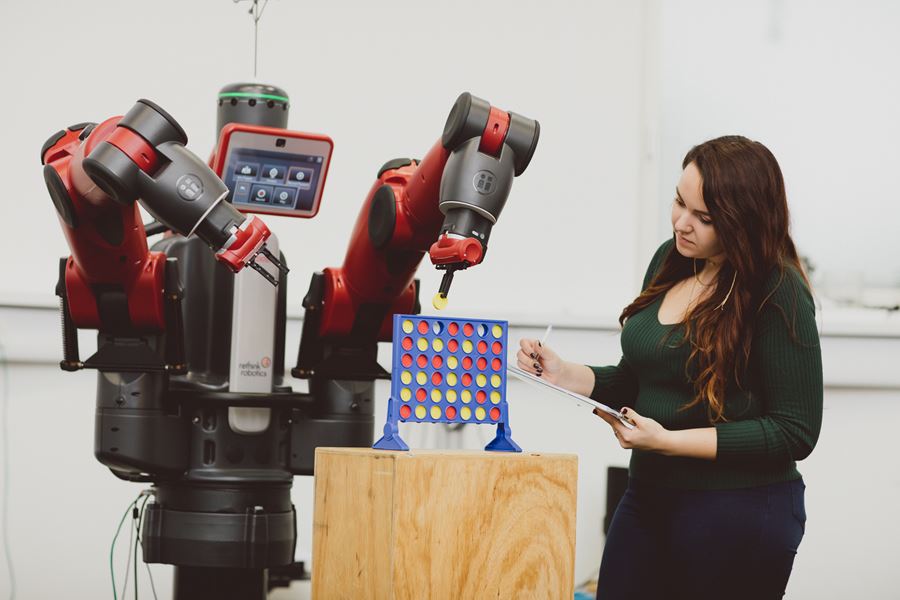Data-efficient machine learning for fault-tolerant robots
-
Wed 23 May 18
16:00 - 18:00
-
Colchester Campus
1N1.4.1
-
Event speaker
Dr Danesh Tarapore
-
Event type
Lectures, talks and seminars
CSEE Seminar Series -
Event organiser
Computer Science and Electronic Engineering, School of
-
Contact details
CSEE School Office csee-schooloffice@essex.ac.uk
Robots have transformed many industries such as manufacturing and logistics.
However, a major obstacle to their widespread adoption in more complex environments outside factories is their fragility. Whereas animals can quickly adapt to injuries, current robots cannot ‘think outside the box’ to find a compensatory behavior when they are damaged: they are limited to their pre-specified self-sensing abilities, can diagnose only anticipated failure modes, and require a pre-programmed contingency plan for every type of potential damage, an impracticality for complex robots. A promising approach to reducing robot fragility involves having robots learn appropriate behaviors in response to damage, but current techniques are slow even with small, constrained search spaces. In this talk, I will introduce a new type of evolutionary algorithm (EA) that enables robots to adapt to damage in less than two minutes in large search spaces without requiring self-diagnosis or pre-specified contingency plans. Before the robot is deployed, it uses the EA to illuminate a detailed map of the space of high-performing behaviors. This map represents the robot’s prior knowledge about what behaviors it can perform and their value. When the robot is damaged, it uses this prior knowledge to guide a Bayesian optimization process to rapidly discover behaviors that work despite the damage. Such a combination of bio-inspired algorithms and data-efficient machine learning techniques allow us to optimize the parameters for walking-robot controllers in 36D, to discover compensatory behaviors to damages (e.g., broken joints) in just a few trials (less than 2 minutes). The work was featured on the front cover of Nature.

Speaker details: Danesh Tarapore is a lecturer at the Agents, Interaction and Complexity group, Electronics and Computer Science of the University of Southampton. Prior to Southampton he was a Marie Curie research fellow at the University of York. He completed his Ph.D. in Life Science at the University of Lausanne, in collaboration with the Ecole Polytechnique Fédérale de Lausanne (EPFL), in Switzerland. His research interests lie at the intersection of biology, computer science, and robotics. Through the development and application of theoretical models, multi-scale stochastic simulations, and the physical instantiation of biological models in robots, he has addressed a diverse range of important problems in division of labour in social insect societies and the immunological maintenance of self-tolerance in the adaptive immune system. He has also successfully applied biological models towards the development of fault-tolerant systems for a wide range of mobile robots, including complex single-robot systems, and large-scale robot swarms. He is now working towards applying his algorithms to robots operating in more challenging outdoor environments, specifically towards the development of resilient swarms of autonomous surface vehicles.